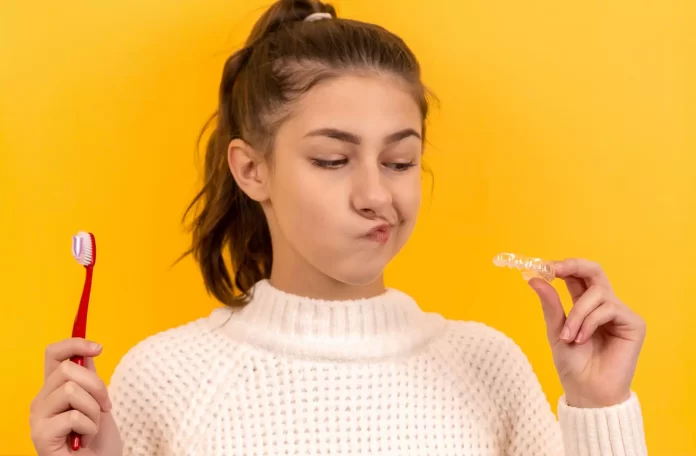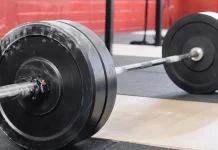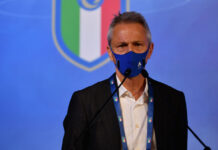If you are a retainer user, then you must have tried to look up How to clean Retainer? Believe us that cleaning your retainer is not as difficult as it seems and we will provide you with all the information about how to do so.
A retainer is a custom-created, removable device that helps your teeth to keep them in their new position after the braces have been removed. They are generally used to deal with minor orthodontic problems. Retainers are a very important part of post-brace care and must be used without any hesitation.
Unhygienic and unclean retainers can cause infections in your mouth and can lead to serious dental issues. Ultimately, instead of serving their purpose, unclean retainers would do further damage to your mouth.
You have come to the right place and now follow our guide to maintain good dental health and clean retainers.
Why Wear a Retainer?
The most common reason for wearing a retainer is to prevent the teeth from shifting. This can be caused by trauma, or it may just happen naturally over time.
The good news is that if you wear your retainer regularly and properly, you should not need to have any orthodontic treatment in order to correct this problem. However, if you do notice that your teeth are moving, it’s important to get them checked out right away.
Types of Retainers
We all know the purpose of retainers, but do we know how many kinds of retainers are there? Well, there are three major kinds of retainers and they are different from each other but serve the same purpose. Let us find out what they actually are-
- Removable Hawley Wire Retainers- These are metal wire retainers and they last for a pretty long time. They can be adjusted and even repaired. It also allows the bite to “settle” into a comfortable position as you keep using it. They even come with customized colors, logos, etc.
- Removable Clear Plastic Retainers- These are plastic transparent removable retainers that have made things much easier. It holds the teeth in their exact position. They even protect the teeth against grinding and are almost invisible which does not make your teeth look weird.
They are less expensive and easy to replace. If a slight movement occurs, wearing them full time will help them move the teeth back into the proper position.
- Bonded Permanent Retainers- This is the least popular type of retainer today. Although, they can last for a long time if maintained properly and they cannot be lost as they are glued permanently. But these are very difficult to clean, brush and floss.
You can choose any type of retainer you want but maintaining them is your personal responsibility. Maintain proper hygiene and keep your retainers safe.
Why do Retainers smell?
Your mouth is not only the home of your teeth but also the home of billions of bacteria. As these bacteria thrive and grow, it releases gas as a form of waste. And when you have a retainer on these bacteria don’t get cleaned very well.
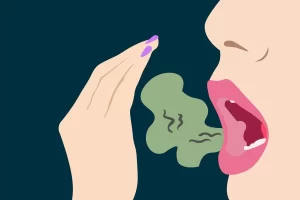

This bacteria releases gas as a form of waste, which further contributes to the growth of plaque and tartar on your teeth, as well as on the retainer. This causes serious bad breath and the foul strong smell that you experience.
If the plaque is allowed to deposit on the retainer, it will further develop a strong odor. And that is in fact unhealthy and extremely embarrassing. Therefore, putting a retainer in your mouth is not something that you would like but it becomes a compulsion at times.
The ideal way to reduce the risk of plaque build-up and avoid the bad smell is to take proper care and maintain hygiene.
Signs It’s Time to Clean Your Retainer
All retainers that you use signal you at the correct time to clean them. Before you understand how to clean your retainer, you need to know when is the correct time to clean your retainer. Most users often overlook and avoid the signs of cleaning your retainer.
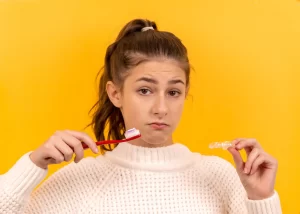

Your retainer gives a series of signs when it becomes the time to clean them. So instead of delaying or lingering make sure you start cleaning it immediately. Here, are a few signs that you must always pay attention to-
- When your retainer scents or tastes terrible.
- When you see a layer of film on your retainer.
- When you find your retainer looking shady or black.
- When it’s more than seven days since you last cleaned it.
- And, when you see “white spots” on your retainer.
You must be very careful if you find “white spots” on your retainer, that would essentially mean you have a mineral develop or plaque that causes holes in natural teeth or a blend of the two.
In case you locate any of these signs make sure you clean your retainer thoroughly in order to dispose of any kinds of plaque and microbes that might be developing.
Know how often should you clean your retainer
Cleaning your retainer might be a tiresome job, but it is extremely essential for you to clean them for healthy dental hygiene.
Ideally, you should try and clean your retainers thoroughly at least once a day. You can use two pairs of retainers so that you can use them alternatively. Rinsing the retainers is essential as it removes the plaque and other foul smells.
You should soak your retainers in a denture cleaner, thoroughly at least once every two weeks to maintain your retainers.
Read Also: Does Stress Make Your Hair White?
The best way to clean retainers
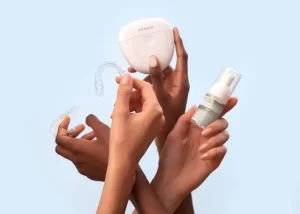

Here are some Cleaning Tips for Any Type of Retainer–
- Make sure to clean your retainer as soon as you remove it from your mouth.
- Brush out the retainer with a cotton swab with lukewarm water after each meal.
- In order to get a deep clean try and soak it in soapy water, or baking soda solution so that it cleans properly.
- Rinse the retainer under running tap water and wipe it with a wet cloth.
Toothpaste, Mouthwash, and Dental Floss
For good oral health brushing your teeth with toothpaste helps. It prevents cavities and gum disease while mouthwash kills germs. And brushing your teeth with toothpaste removes plaque build-up on your retainer. You should use a soft-bristled toothbrush for gentle cleaning. But what about cleaning your retainer? Here are some tips:
Brush your retainer with a soft cloth or towel. Don’t use dental floss because it could scratch the wires. Use a U-shaped metal device called a tongue scraper to scrape away the bacteria stuck on your upper gums and under your retainer. And finally, dry it with a soft cloth or towel.
How to Clean Your Retainer the Safe and Natural Way?
Retainers are something that you put in your mouth and therefore you need to be careful about what you are using and how you are trying to clean them. You must always adopt a safe and natural way.
Here we have tried to provide a few steps to clean your retainer in a safe and natural way-
- Always try to keep it moist.
- Every once a week use a white vinegar solution to clean your retainer.
- Don’t brush your retainer.
- From time to time take it to your dentist to assess its condition.
Doing this will eventually help in maintaining your retainers. If not cleared properly your retainers can make your mouth a breeding ground for bacteria and other germs.
The best ways how to clean plastic retainers
There are a few essential items that you will require to clean your plastic retainers. Different kinds of retainers require different ingredients. Here are the things that you will require-
- White Foam by EverSmile
- White Vinegar
- Baking Soda
- A gum brush
- Dish soap
- Cotton Swabs
- A stainless steel container
Methods of Cleaning the Plastic Retainers-
- Clean Using White Foam by Eversmile- White Foam is a hydrogen peroxide-based solution for cleaning retainers. Squeeze White Foam into your plastic retainers and move it around and use it to clean the retainer. You can also try and soak it in White Foam for a few minutes to clean it quickly.
2. Clean Using White Vinegar and Baking Soda- These are items that you can find at your home. It is extremely effective at removing plaque and other junk from your retainer.
Use a stainless steel container to soak your retainer in a mixture of lukewarm water, white vinegar, and baking soda. Let it soak for 10-15 mins. Rinse it with cool water and use it again.
3. Clean Using Dish Soap- Washing with dish soap might seem to be an odd method, but it is an extremely effective method. Use something such as a soft cotton swab to clean the retainer with dish soap. You can make a lukewarm solution using dish soap and warm water and soak the retainer for better daily cleaning.
Now rinse it using cold running tap water and use it again without any problem.
How can I soak my retainers in mouthwash?
If you have planned in any way to soak your retainers in mouthwash, you must discard that idea immediately. Mouthwash contains alcohol and can dry out both a retainer and your mouth. Alcohol is very harmful to any kind of retainer irrespective of plastic or metal.
In case no other options are available, you can try soaking them in non-alcoholic mouthwash for 2-3 minutes and rinse them with cold water, and then gently wipe them with a cotton swab or a soft cloth.
Alcohol is extremely corrosive to any kind of retainers, so refrain from trying out any experiments with it.
Other Popular Retainer Cleaning Methods You Should Always Avoid
These days on the internet you will find tons of articles suggesting ways and ingredients to clean your retainer. But you need to make sure the ways they are suggesting are legitimate, safe, and healthy.
There are certain elements that you must be avoiding to clean your Retainer. We have tried to make a list of those things-
- Brushing your retainers.
- Dishwashers.
- Boiling water or hot water can cause it to deform.
- Soaking or washing with Mouthwashing containing alcohol.
- Toxic retainer cleansers and tablets.
- UV light sanitisers.
- Bleach, alcohol, and other corrosive harmful chemicals.
Save your retainers from all of these elements. A lot of people try and clean their retainers with these items and in this way and have seriously damaged them.
FAQs
1. The Best Ingredients for Cleaning Your Retainer
To ideally answer the question we have already told you what ingredients to use in order to clean your retainer. Yet the best ingredients that you can use are-
Plain distilled water
Certain retainer cleaning gels
White Vinegar
Baking Soda
Dish Soap
Gum brush
Cotton Swab
These are some of the safe ingredients that you can use to clean your retainers on a regular basis. It is best to clean them with natural solutions and keep them submerged in soaking solutions when they are not in your mouth.
2. How to clean your retainer using baking soda?
Baking soda is the safest and ideal natural way to clean your retainer. It helps in killing harmful bacteria and ensures stinkless retainers. Just soak your retainer in the solution for some time and then clean it off with running water.
3. How to Clean Your Retainer with Castile Soap?
Castile Soap is an effective retainer cleaner. Just add one to two drops of castile soap to the water that you will soak your retainer in. However, castile soap contains various essential oils therefore it might not be an ideal cleaning solution.
After cleaning it with Castile soap you need to rinse it with clean water thoroughly.
4. How to Clean Your Retainer with White Vinegar?
The ideal way to use White Vinegar to clean your retainer is by soaking it in white vinegar for 15 mins once a week. Make sure to thoroughly rinse your retainer under running tap water and then place it in a stainless steel container with distilled water.
5. How to Clean Your Retainer with a UV Sanitiser?
There is simply one answer to this question, You shouldn’t be doing it! Many dentists do recommend UV sanitisers, but there are serious drawbacks of it including cell oxidation and damaging the acrylic of the retainer. Therefore, it is ideal to stay away from this method.
6. How to Clean Your Retainer with Hydrogen Peroxide?
You must not use Hydrogen Peroxide to clean your retainer. Your retainer goes into your mouth and even tiny traces of hydrogen peroxide shouldn’t be in your mouth. Hydrogen Peroxide causes free radical reactions and these reactions can be toxic and even kill many good bacteria required by your body.
To Summarize
Now that we have told you everything about How to clean Retainer, we hope that now you can easily clean your own. Retainers are supposed to be safe and clean and therefore you must always choose the best and safe options so that your mouth should feel fresh and healthy.


